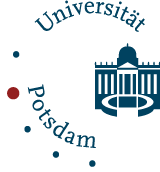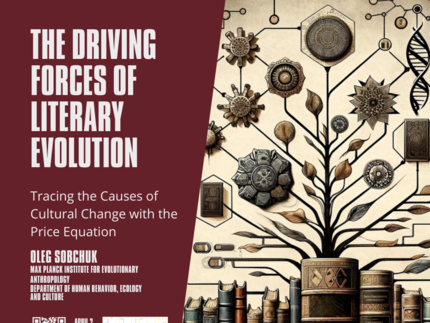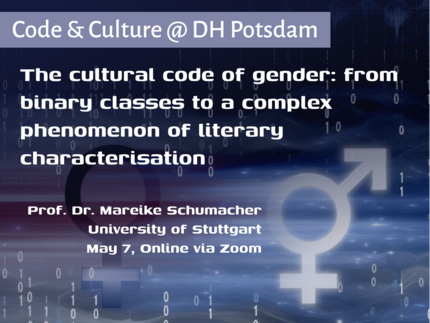Vortragsreihe „Code & Kultur“
vom Digital Humanities Network der Universität Potsdam
Besuchen Sie uns einmal im Monat für unsere wiederkehrende Vortragsreihe zur digitalen Analyse von Literatur und Kultur. In jeder Sitzung präsentiert ein angesehener Forscher, der sich auf computergestützte Literaturwissenschaft oder andere digitale Kulturstudien spezialisiert hat, seine neuesten Erkenntnisse. Im Anschluss an den Vortrag sind die Teilnehmer zu einer lebhaften Diskussion eingeladen, in der sie tiefer in die vorgestellten Themen eintauchen und sich mit anderen Enthusiasten austauschen können.
Frühere Vorträge
Abstrakt
Does literature progress “one funeral at a time”, as Max Planck famously claimed about science? Is the change mainly driven by the turnover of “generations”, or cohorts? Who contributes more to change in literature and arts – “old masters” or “young geniuses”? And how can we separate the different causes of cultural change?
A trendline spanning a period of time is one of the most common graphs in the computational humanities. Often, such a trendline is explained with a single causal mechanism: a cause C is driving a trait T over a period P. For example, the proportion of negative words (T1) during the 20th century (P1) in literature is increasing due to “negativity bias” (C1). Or, the proportion of abstract words (T2) in the 19th century (P2) is growing due to urbanisation (C2). On the surface, this approach may look sufficient but, under the surface, there are rocks: not only there could be multiple causes, but also different parts of the trendline may be driven by different causes. In computational humanities, there is no effective method for “dissecting the trendline” and uncovering these hidden causal mechanisms.
The scholars of evolution, however, do have such a method: a simple and elegant – and famous – equation that was suggested by the mathematician George R. Price over 50 years ago, known as “the Price equation”. It allowed biologists to uncover the potential driving forces behind evolutionary change. The forces behind literary – and, more broadly, cultural – change are still little known – and much debated. The Price equation can give us the answers.
Abstrakt
Can the two classes "male" and "female" – often understood as a binary either-or distinction – actually be modeled as basic units ("primitives") that can be arranged into complex codes designating all facets of gender in its multiplicity? In this talk, an analogy between the technical binary code and the cultural code of gender is used to test the hypothesis that gender can be seen as a discrete phenomenon constructed through varying combinations of male and female features. Additionally, it is brought into question whether "neutral" should be seen as a third basic unit and whether there might be more “gender primitives”.
The presentation also includes a case study from Computational Literary Studies, in which several corpora consisting of literary texts in the German language are analyzed. In the study, gender roles such as ‘father’, ‘young girl’, or ‘person’ are classified according to basic gender units. By analysis of almost 400 character profiles, typical and atypical gender codes are defined, and a spheric notion of gender is introduced.
Um mehr über die nächsten Vorträge zu erfahren, abonnieren Sie bitte unsere Mailingliste
Kontakt des Veranstalters:
Daniil Skorinkin (skorinkinuuni-potsdampde), Digital Humanities Coordinator an der Universität Potsdam



